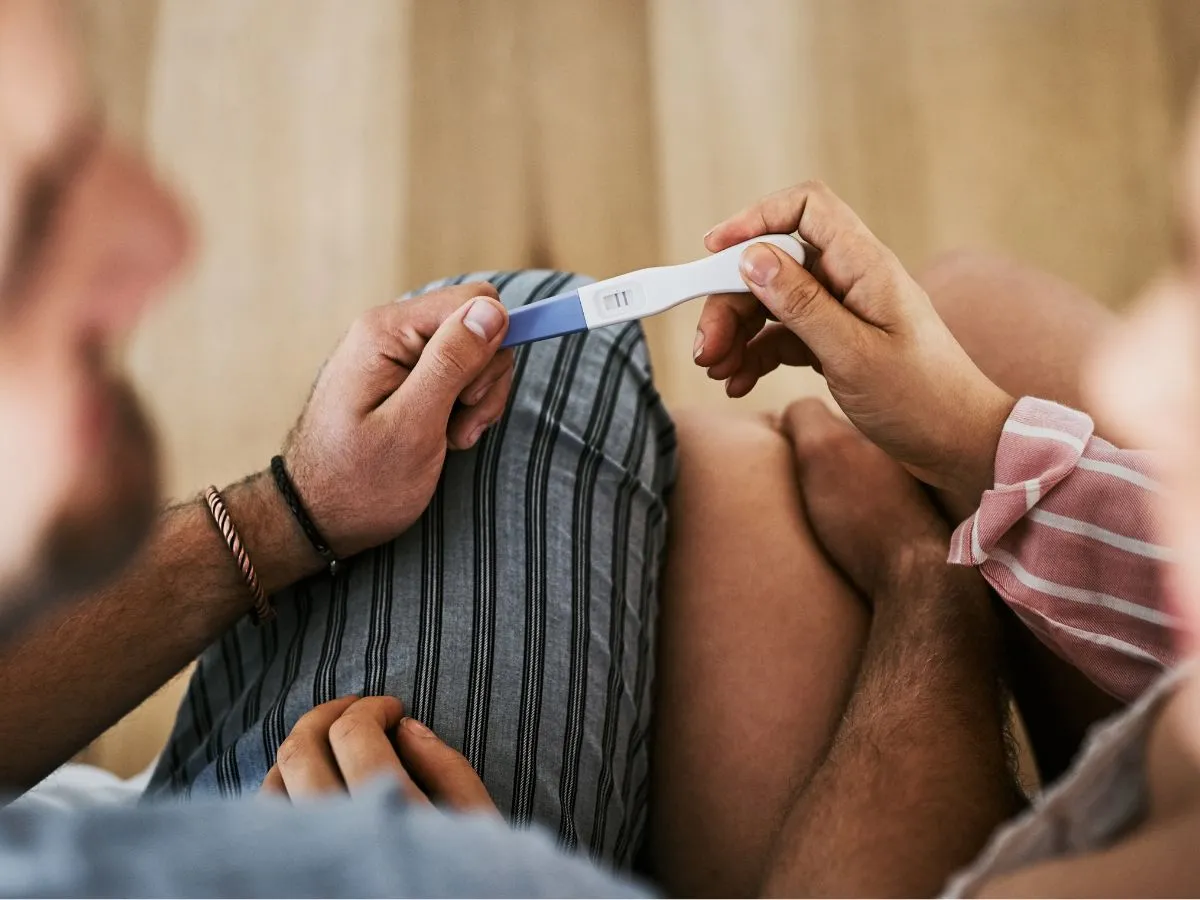Human Chorionic Gonadotropin (hCG) and TRT Explained
Testosterone Replacement Therapy (TRT) has become essential for many Canadian men dealing with the challenges of low testosterone (Low T). But without a complementary therapy like Human Chorionic Gonadotropin (hCG), TRT can have unintended side effects, including testicular atrophy, infertility, and hormonal imbalances.
This guide will explain the relationship between hCG and TRT, showing how hCG enhances the overall effectiveness of TRT. Whether you're already on TRT or considering it, this post will help you understand how to maintain your hormonal health and fertility.
How TRT Impacts Male Hormonal Health
When you undergo TRT, the external testosterone disrupts your body's natural hormonal machinery, specifically the Hypothalamic Pituitary Gonadal (HPG) Axis. This axis regulates testosterone production by signaling the testes to produce sufficient levels of testosterone.
TRT introduces external testosterone into your body, triggering a "negative feedback loop," which reduces the production of Luteinizing Hormone (LH) and Follicle-Stimulating Hormone (FSH). These hormones are essential for natural testosterone production and sperm development. Over time, this disruption can lead to testicular atrophy and even infertility.
Enter Human Chorionic Gonadotropin (hCG), a game-changer for TRT patients.
Benefits of Combining hCG with TRT
1. Prevents Testicular Atrophy
One of the most concerning side effects of TRT is testicular atrophy, a condition where the testes shrink and lose their natural function. This happens because TRT suppresses the body's production of LH, which usually signals the testes to produce testosterone.
hCG mimics LH, stimulating the Leydig cells in the testes to continue producing natural testosterone. This keeps the testes active and prevents shrinkage, maintaining their size and health.
Even if you don't plan to have children, preventing testicular atrophy is key to overall hormonal health and avoiding potential discomfort or pain associated with shriveled testes.
2. Improves Libido and Restores Penis Sensitivity
TRT combined with hCG can have a positive impact on libido and erectile function. Since hCG ensures the testes remain functional and produces testosterone naturally alongside TRT, many patients report an improvement in sex drive and sensitivity.
Often, the addition of hCG to a TRT protocol helps individuals feel more balanced, both physically and emotionally, enhancing intimate relationships.
3. Supports Fertility While on TRT
TRT alone usually suppresses the production of sperm by interfering with intratesticular testosterone levels, which are essential for activating Sertoli cells (the "sperm factories" in the testes).
However, when hCG supplements TRT, it provides the necessary signal to the Leydig and Sertoli cells to keep the sperm production machinery running. Studies have shown significant improvements in sperm count and motility for patients using hCG alongside TRT.
For men dealing with primary or secondary hypogonadism, hCG can be particularly effective. Secondary hypogonadism (caused by issues in the hypothalamus or pituitary gland) is especially responsive to hCG, as it helps restart natural testosterone and sperm production.
4. Restores Fertility After Stopping TRT
For patients who wish to conceive after using TRT, hCG becomes a vital tool. TRT-induced infertility is typically reversible, but incorporating hCG hastens the recovery process.
By stimulating the testes to produce intratesticular testosterone and sperm, hCG speeds up the restoration of fertility after discontinuing TRT. These results are supported by studies showing that even in severe cases of reduced sperm production (such as bodybuilders experiencing full spermatogenesis stoppage), hCG can help restore fertility within months.
Age, the duration of TRT use, and individual hormone levels play a role in the extent and speed of recovery, but hCG has shown remarkable efficacy across a wide range of cases.
5. Stabilizes Hormones and Reduces Side Effects
TRT can cause unwanted hormonal fluctuations, creating peaks in testosterone and estrogen. When there's too much testosterone in the system, some of it gets converted into estradiol (a form of estrogen) through a process called aromatization. High estrogen levels can lead to side effects like gynecomastia (enlarged male breasts), water retention, and mood swings.
Administering daily low doses of hCG subcutaneously can help stabilize testosterone levels, minimizing these spikes and avoiding estrogen overproduction. This creates a steadier hormonal balance, improving overall well-being.
Endocrinologists typically recommend starting TRT with the smallest doses of testosterone and hCG, allowing for gradual adjustments based on individual needs and detailed blood work analysis.
How hCG Acts as a Vital Element in Hormone Therapy
The combined use of TRT and hCG ensures that testosterone replacement doesn't come at the cost of underlying testicular health or fertility. hCG safeguards the natural processes within the testes while amplifying the benefits of TRT.
For Canadian men navigating the complexities of TRT therapy, integrating hCG provides a holistic approach to balancing hormones, enhancing fertility, and boosting overall quality of life.
 |
||
Take our online test and check if you are eligible for our hormone therapyThis allows our medical team to analyse your blood test and confirm if you’ve qualified for treatment |
Supporting Evidence
Numerous studies and patient experiences support the role of hCG in TRT protocols:
- A 2021 study published in the Journal of Urology found that hCG improved sperm production in over 90% of participants undergoing TRT.
- Research highlighted in The Lancet demonstrated hCG's ability to reverse TRT-induced infertility within six months for the vast majority of patients.
- Testimonials from patients on integrated HRT protocols report greater libido, improved mood stability, and increased energy levels when hCG is part of the regimen.
Seeking Professional Guidance for Your Hormonal Health
While the benefits of hCG in TRT are clear, hormone replacement therapy should always be conducted under medical supervision. Blood work, consultations with endocrinologists, and careful dosage adjustments are essential for a successful and safe experience.
If you're exploring TRT or looking to add hCG to your protocol, seek guidance from Canadian experts offering evidence-based hormone therapies like those at Science & Humans. With personalized care, you can achieve optimal testosterone levels while protecting your long-term health and fertility.
FAQs
Why is hCG important when undergoing Testosterone Replacement Therapy (TRT)?
hCG plays a critical role in maintaining hormonal balance during TRT. While TRT introduces external testosterone to alleviate Low T symptoms, it can suppress the body's natural testosterone production, leading to testicular atrophy and infertility. hCG mimics the action of Luteinizing Hormone (LH), stimulating the testes to continue producing testosterone internally. This helps preserve testicular function, maintain fertility, and improve overall treatment outcomes.
Can hCG help prevent testicular shrinkage during TRT?
Yes, hCG can effectively prevent testicular atrophy, a common side effect of TRT. When the body receives testosterone externally, it stops producing LH, which normally signals the testes to produce testosterone. hCG steps in to replicate that signal, keeping the testes active. This prevents shrinkage and ensures the testes retain their natural size and function—critical even for men not planning to have children.
Will combining hCG with TRT improve my libido and sexual function?
Many men report a significant improvement in libido, erectile quality, and penis sensitivity when hCG is added to their TRT regimen. This is likely because hCG helps maintain the natural testosterone production that supports sexual function, while also preserving hormonal balance. In contrast, TRT alone can sometimes cause dips in libido over time due to suppressed testicular activity and hormonal imbalances.
Is it possible to stay fertile while on TRT?
While TRT on its own can suppress sperm production and lead to infertility, adding hCG can preserve fertility. hCG stimulates the Leydig and Sertoli cells in the testes, both essential for spermatogenesis. By maintaining intratesticular testosterone levels, hCG ensures that sperm production continues even while on TRT, making it a vital component for men who want to maintain reproductive capabilities.
Can hCG restore fertility after stopping TRT?
Yes, hCG is often used to help men recover fertility after stopping TRT. Although TRT-induced infertility is usually reversible, the recovery can be slow without support. hCG accelerates this process by reactivating testosterone and sperm production in the testes. Depending on factors like age, TRT duration, and baseline hormone levels, men may see significant improvements in sperm count and motility within a few months of hCG therapy.
How does hCG help balance hormones and minimize TRT side effects?
hCG contributes to hormonal stability by supporting natural testosterone production and helping prevent extreme fluctuations in hormone levels. When testosterone levels spike due to TRT, some of it can convert to estrogen through aromatization, leading to issues like water retention, mood swings, or gynecomastia. Low-dose hCG administered regularly can help maintain a more consistent hormonal environment and reduce these unwanted side effects.
Is hCG suitable for all men on TRT, or just those trying to conceive?
hCG isn't just for fertility preservation—it benefits most men on TRT by maintaining testicular health, natural testosterone production, and overall hormonal equilibrium. Even if you’re not planning to have children, preventing testicular atrophy, maintaining sexual function, and achieving better mood and energy levels make hCG a valuable addition to TRT protocols for a wide range of patients.
Should I consult a specialist before starting hCG with TRT?
Absolutely. Hormone therapy is highly individualized, and both TRT and hCG require careful dosing and monitoring. A qualified healthcare provider will assess your hormone levels, analyze your blood work, and tailor a plan that aligns with your health goals. Attempting to self-medicate with hCG or TRT can lead to complications, so working with experts—like those at Science & Humans—ensures a safe and effective treatment experience.



